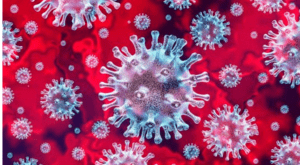
There is general guidance for Sikhs at a time of bereavement detailed in the Sikh Code of Practice (Sikh Reyat Maryada).
This will need to be amended/adapted in view of the necessity of limited contact to ensure safety in the current pandemic. General Sikh practice is described first, followed by specific suggestions to meet the current emergency.
BEREAVEMENT GUIDANCE FOR NORMAL TIMES
(a) No rituals derived from other religions, or from any other source, should be performed when a death occurs. Solace must be found in reading the Guru Granth Sahib and meditating on God.
(b) Deliberate exhibitions of grief or mourning are contrary to Sikh teachings. The bereaved should seek guidance and comfort in the hymns in the GuruGranth Sahib and try to accept God’s will.
(c) A dead person, even one who dies very young, should be cremated. However, if arrangements for cremation do not exist (e.g. at sea) the body may be disposed of by immersion in water.
(d) Cremation may be carried out at any convenient time whether day or night.
(e)For baptised (amritdhari) Sikhs, the five Ks should be left on the dead body, which should, if possible, be cleaned and clothed in clean garments before being placed in a coffin or on a bier.
(f) Hymns should be said as the body is taken to the place of cremation.
(g) A close relative should initiate the cremation and those assembled should sing appropriate hymns from the GuruGranth Sahib.
(h) The cremation ceremony is concluded with the Kirtan Sohila prayers and the saying of the Ardas.
(i) Prayers for the departed soul should then be commenced at the deceased’s home or at a convenient Gurdwara. These prayers should commence with the usual six stanzas of the Anand Sahib, the saying of Ardas and distribution of Kara Prashad, and should be continued for about ten days. The near relatives of the deceased should take as large a personal part in reading and listening to recitals from the Guru Granth Sahib as possible.
(j) The ashes of the deceased may be disposed of by burial or by immersion in water, but it is contrary to Sikh belief to consider any river holy or especially suitable for this purpose.
(k) The erection of a memorial in any shape or form is contrary to Sikh belief.
GUIDANCE ON BEREAVEMENT DURING THE PANDEMIC
While we should bear the above guidance in mind, social distancing requirements will result in only a few close relatives of the deceased being present. In some circumstances no one may be able to attend. We should bear in mind that funeral rituals are designed to help surviving relatives and friends accept their sad loss in a dignified and contemplative way. This helps us understand that the soul has left for its heavenly abode and that the physical body of the deceased is no more and should be disposed of in a hygienic way, preferably by cremation.
Prayers in remembrance of the departed can be done at home by the family members or remotely (via video-telephony apps) with other friends and relatives participating. A donation to an appropriate charity in memory of the departed should also be considered. A full service in memory of the departed can, assuming pandemic restrictions are eased, be held on the first anniversary of the bereavement.
Lord Singh of Wimbledon CBE
Director, Network of Sikh Organisations


 Why we should seriously consider the temporary closing of normal gatherings in gurdwaras to prevent the spread of coronavirus (Covid-19)
Why we should seriously consider the temporary closing of normal gatherings in gurdwaras to prevent the spread of coronavirus (Covid-19)